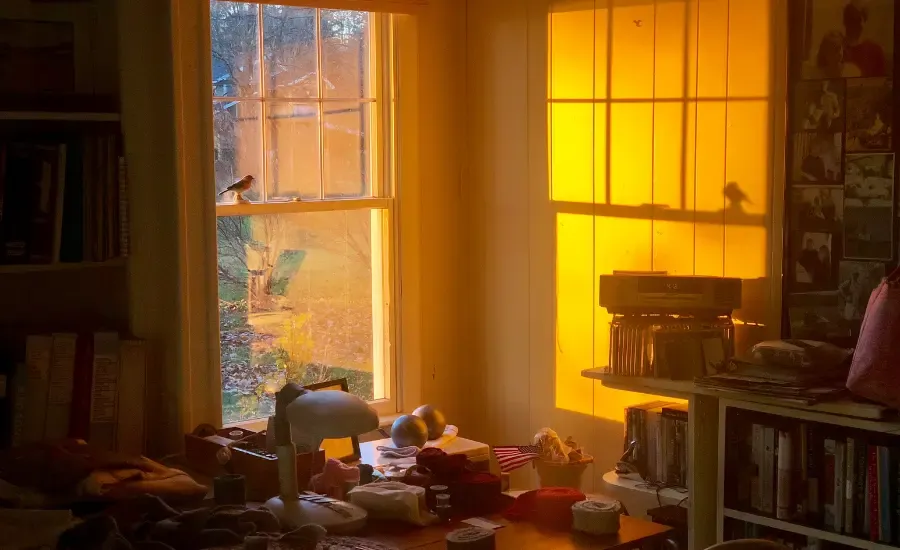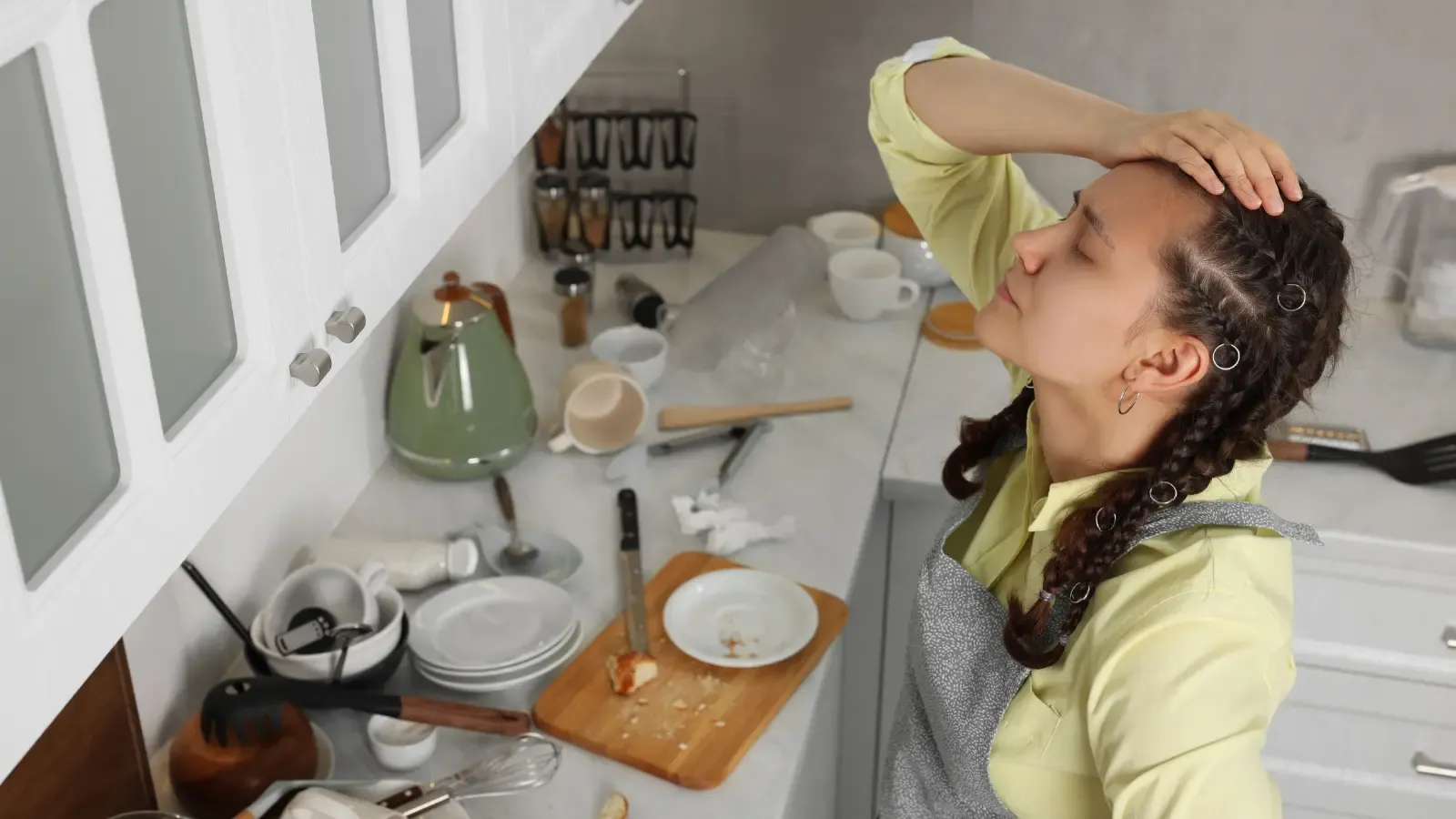Most of us have a spot in our home that's a bit (or a lot!) more "lived-in" than we'd like to admit. Maybe it's that chair buried under a mountain of clothes, a counter overflowing with mail, or a pantry that looks like a war zone. You walk by it, sigh, and promise yourself you'll tackle it... tomorrow. But what if those piles and overflowing drawers are doing more than just annoying you? What if they're actually sending you a message about how you're feeling inside?
It turns out, there's a fascinating connection between our physical surroundings and our inner peace. Your messy home might be more than just a matter of finding the time to tidy up; it could be a subtle clue from your subconscious.
The Invisible Weight: How a Messy Home Affects Your Psychological Health
Every single item in your home, especially when it's out of place, subtly demands a tiny bit of your attention. When clutter is everywhere, those tiny demands multiply. This can lead to something psychologists call "cognitive overload." Your brain is constantly working to process all that visual information, even if you're not consciously realizing it. This background "noise" can make it harder to focus, to genuinely relax, and even to think clearly.

Studies have actually shown that a cluttered environment can increase your stress hormones, like cortisol. Imagine coming home after a long, busy day, hoping to kick back and unwind, only to be met by disarray. Instead of feeling like a peaceful haven, your home starts to feel like just another source of stress. This constant, low-level stress can quietly contribute to feelings of anxiety, irritability, and plain old exhaustion. Essentially, a messy home can quietly but powerfully chip away at your psychological health.
More Than Just "Stuff": Messy Home Psychology in Action
So, what's really going on with this messy home psychology? It's often a bit of a loop: external clutter can create internal chaos, and internal states can show up as external clutter.
- Decision Fatigue: When you're always making little decisions about where to put something or what to do with an item, you get what's called decision fatigue. This can make you put off even bigger tasks. Those piles grow because you're simply too mentally drained to decide what to do with them.
- Overwhelm and Avoidance: For some, a messy home becomes a stand-in for feeling overwhelmed in other areas of life. It can feel easier to avoid dealing with the physical mess than to face deeper issues that might be contributing to that overwhelmed feeling. The mess becomes a reflection of unspoken worries or needs.
- Feeling Out of Control: In a world that often feels pretty unpredictable, having a sense of control over our immediate surroundings can be incredibly empowering. When our homes feel out of control, it can amplify feelings of helplessness in other parts of our lives.
- Perfectionism vs. Procrastination: This is a tricky one! Sometimes, wanting everything to be perfect can actually lead to a messy home. We might put off tidying because we feel we can't do it "perfectly," which just makes the mess bigger and the procrastination worse.
- Emotional Clinginess: Our homes are filled with memories and things that hold a great deal of significance for us. Sometimes, we hold onto things out of sentiment or a fear of letting go, even if those items are just adding to the clutter. This can be a sign of emotions we haven't quite processed or a reluctance to move forward.
From Clutter to Calm: The Psychological Effects of a Messy Home (and How to Reverse Them)

The really good news? The opposite is just as true! A tidy, organized space can have incredibly positive psychological effects. When you clear out clutter and get organized, you're not just tidying your physical space; you're also creating more mental breathing room.
- Less Stress and Anxiety: A clear environment helps create a clear mind. When you have fewer visual distractions, your brain can relax, leading to lower stress and anxiety.
- Better Focus and Productivity: With less clutter to distract you, it's easier to concentrate on whatever you're doing, whether it's working, enjoying a hobby, or just relaxing with a good book.
- Boosted Mood and Well-being: There's a genuine feeling of accomplishment and calm that comes with an organized space. This can truly lift your spirits and contribute to a greater sense of overall happiness.
- A Stronger Sense of Control: Taking charge of your environment can make you feel more empowered, and that feeling can ripple out into other areas of your life, giving you a greater sense of agency.
- Improved Sleep: A calm and orderly bedroom can actually make a big difference in how well you sleep, since your mind won't be as stimulated by all the surrounding clutter.
Ready to Take a Small Step?
If any of this sounds familiar, don't feel overwhelmed! The goal isn't to suddenly become a minimalist guru, but to simply acknowledge the deep connection between your space and your mind. Start small. Pick one drawer, one shelf, or even just a small corner of a room. Focus on making a little progress, not on achieving perfection right away.
Remember, your home should be your sanctuary. When it feels peaceful and organized, it provides a powerful foundation for your psychological health. So, take a deep breath, and know that every little bit of tidying you do is not just for your home, but for your amazing mind, too. You've totally got this!
 THE WORKING GAL
THE WORKING GAL





